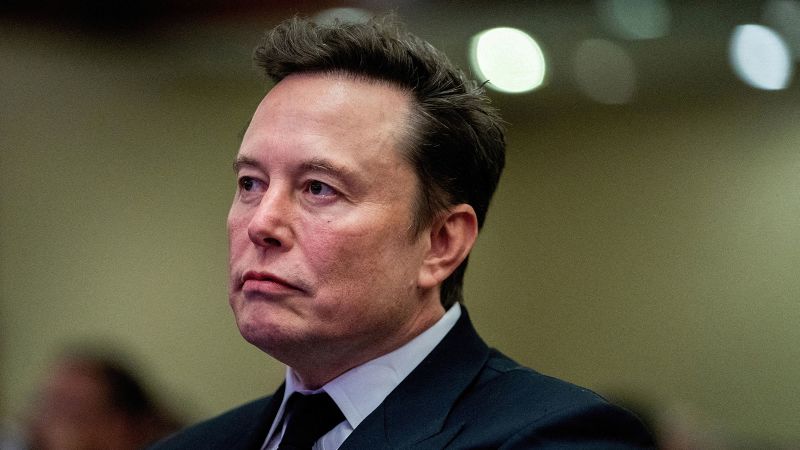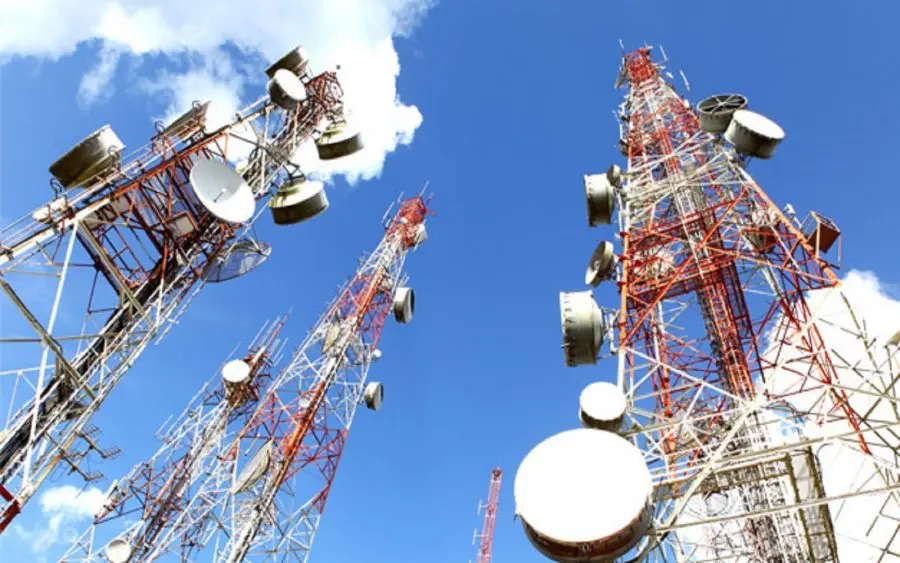Tech
Australia nears social media ban for children after heated debate
Published
5 months agoon
By
Ekwutos BlogAustralia nears social media ban for children after heated debate
By Renju Jose and Byron Kaye
SYDNEY (Reuters) -Australia moved closer on Wednesday to banning social media for children under 16 after the parliament’s lower house passed a bill even as Alphabet’s Google and Facebook-owner Meta pressed the government to delay the legislation.
Marking some of the toughest social media controls in the world, Australia’s House of Representatives passed the bill 102 votes to 13 after Prime Minister Anthony Albanese’s centre-left Labor government secured bipartisan support for the ban.
The Senate is expected to debate the bill later on Wednesday, with the government keen to ensure it is passed by the end of the parliamentary year on Thursday.
Albanese, trying to lift his approval ratings ahead of an election expected in May, has argued that excessive use of social media poses risks to the physical and mental health of children and is looking for support from parents.
The planned law would force social media platforms to take reasonable steps to ensure age-verification protections are in place. Companies could be fined up to A$49.5 million ($32 million) for systemic breaches.
Australia plans to trial an age-verification system that may include biometrics or government identification to enforce the ban.
A Senate committee backed the bill this week, but also inserted a condition that social media platforms should not force users to submit personal data such as passport and other digital identification to prove their age.
The committee added that the government must “meaningfully engage” with youth when framing the law.
“Young people, and in particular diverse cohorts, must be at the centre of the conversation as an age restriction is implemented to ensure there are constructive pathways for connection,” committee Chair Senator Karen Grogan said.
In submissions to parliament, Google and Meta said the ban should be delayed until the age-verification trial finishes, expected in mid-2025. Bytedance’s TikTok said the bill needed more consultation, while Elon Musk’s X said the proposed law might hurt children’s human rights.
IMPACT ON FAMILIES
The ban was first announced during an emotionally charged parliamentary inquiry into social media, which included testimony from parents of children who had self-harmed due to cyber bullying.
It has fuelled vigorous debate with youth advocates arguing it robs children of a voice and parent groups saying under-16s are too young to navigate the digital world.
Teenagers have said the law could cut them off from their most important social and family connections, arguing a ban is not the solution.
“I understand that using social media a lot is not a good thing and I’m working on it,” said Sydney high-school student Enie Lam, 16. “But a ban is not going to work,” she said.
Albanese’s party, which does not control the Senate, won crucial support from the opposition conservatives for the bill, but has failed to win over the left-leaning Greens and some far-right lawmakers on civil liberties and privacy grounds.
One conservative lower house member broke from their party and voted against the bill on Wednesday, a rare event in Australian politics, and two conservative senators said they also would vote against it, arguing the law should be delayed until the age-verification trial was complete.
Even the Australian Human Rights Commission, an independent statutory authority, opposed the ban saying it violated children’s rights to self-expression and to participate in society.
Still, polling shows public support overwhelmingly in favour of the move. A YouGov survey released this week showed 77% of Australians backed the ban, up from 61% in August.
Australian media, from the publicly owned Australian Broadcasting Corp to Rupert Murdoch’s News Corp, also support the ban. An editorial campaign by News Corp, the country’s biggest newspaper publisher, pushed for the ban under the banner “Let Them Be Kids”.
“Our members feel that this is one of the biggest issues impacting on themselves and their families at the moment,” said Jenny Branch-Allen, president of the Australian Parents Council, an advocacy group.
“Big companies have to start taking responsibility. Let’s try and reduce the incidents we’re hearing involved with social media and young people in Australia.”
($1 = 1.5451 Australian dollars)
You may like


VATICAN PUBLISHES PROGRAMS FOR NINE DAYS MOURNING OF POPE FRANCIS


Jude Okoye released after 2 months in jail


Killings: Enough is enough – Tinubu issues marching order to NSA, Service Chiefs


Flight disruption imminent over NiMet workers’ strike


This Gallant Police Officer Sh0t himself Dead at the residence of the VIP he was attached to In Portharcourt.


Hon. Oluwole Oke Resigns from PDP After 24 Years in House of Representatives
Tech
US: ‘It’s time for the virus mind to die’ – Elon Musk slams transgender Americans
Published
3 days agoon
April 21, 2025By
Ekwutos Blog
United States of America tech billionaire, Elon Musk has taken a swipe at transgender people, saying, ‘It is time for the virus mind to die.”
Elon Musk, who is the lead at the Department of Government Efficiency under President Donald Trump’s administration, made this known in a terse statement replying to a Behavioural Risk Surveillance Survey by the Centre for Disease Control on the rising percentage of US adults identifying as transgender.
According to the survey data released on X Sunday by a popular American author, John LeFerre, US adults identifying as transgender surged by year of birth.
The data means that adults identifying as transgender have been on a steady spike, especially those with birth dates from 1990 to 2005.
Reacting, Musk described the trend as a “woke mind virus in action.”
“Now, it is time for the mind virus to die,” he wrote on his X account.
His comments come after Trump’s administration showed a tough stance against transgender people since his second term inauguration in January 2025.
Recall that Trump signed an executive order in February 2025 banning biological men from women’s sports.
In a related development, on Wednesday last week, the United Kingdom Supreme Court ruled that the definition of a woman under the country’s equality law refers to biological sex.
Ekwutosblog reports that the ruling had sparked transgender protests in parts of the UK.
Tech
Gov Soludo is a greater supporter of Innoson group but our Office in Anambra was demolished without pre-notification from government— Innoson Group
Published
6 days agoon
April 18, 2025By
Ekwutos Blog
Innoson Vehicle Manufacturing (IVM) has expressed displeasure over the partial demolition of its Head Office, situated on the Owerri-Nnewi road.
Mr Cornel Osigwe, Head of Corporate Communications at Innoson Group, who confirmed the demolition to newsmen, said that there was no pre notification ahead of the demolition which took place on Wednesday.
He claimed that the office perimeter fence, some offices, stair case and the company’s showroom were affected by the partial demolition.
According to him, there was no pre notification ahead of the demolition; it came to us as a surprise.
“We did not know that the building itself was marked for demolition and if it was marked, they should have given us time to relocate.
“The staff were working and they just saw the demolition vehicle demolishing the building while work was going on.
“Some of our staff were trapped in the building, it took the efforts of our other staff to rescue those that were trapped while over 20 vehicles were also trapped.
“A day before the demolition, there was an announcement that there was going to be a demolition and they were going to give one week for the houses that were marked for demolition to relocate.
“The company was not aware that the company was marked for demolition, and even if it was aware.
“There have been a public announcement that all the marked buildings have one week to relocate, but all those things were not considered
“There were other buildings that were close to the head office and marked for demolition were not demolished but they came straight to our building and demolished it, making us to wonder if there was another ulterior motive to it,” he said.
“Gov. Charles Soludo of Anambra has been a great supporter of Innoson Vehicle and Innoson has been a great supporter of the state government.

“But the way and manner that everything happened makes us to wonder if the state government is aware that those handling the demolition have personal vendetta against the company,” he added.
Tech
They only know how to drain data’ – Telecom consumers lament tariff hike, poor network
Published
1 week agoon
April 14, 2025By
Ekwutos Blog
Some telecommunication services consumers in the Federal Capital Territory, FCT have urged Mobile Network Operators to improve their services to match the recent hike in their tariffs.
They made the call in separate interviews with NAN on Monday in Abuja.
The subscribers said despite the increase in subscription rates mobile networks could remain epileptic for hours.
In a publication dated February 6, 2024, the Executive Vice-chairman of the Nigerian Communications Commission, Dr Aminu Maida, said that the commission would hold service providers accountable for poor service delivery.
Mr Ogah Paul, one of the subscribers said he had enough data on his network but could not access the internet because of the epileptic network.
He urged service providers to fix the problems surrounding the poor services.
“The only thing they know is to drain data without any good service delivery. I feel like crying because of a problematic network. I have been receiving server errors since morning.
“To even download and watch a video sent to me since, takes me almost one whole day. “I wonder if members of staff of the service providers are enjoying the service they render to us.
“We cannot make calls, access the internet or even receive calls,’’ he said.
According to him, unfortunately, the network providers put up some of the best adverts about their products and services which they cannot meet.
Mr Victor James, another subscriber said he had enough data but was not able to use it to his satisfaction.
“Why does their data plan not reflect immediately when you buy data? Sometimes it takes as much as 24 hours to reflect.
“I am tired of this. The network is really bad. I have enough data but I cannot use it the way I want.
“I hope the issues get resolved as soon as possible so that I can access my data without further delay,” he said.
However, Ms Josephine Tanko, told NAN that she had no problems with her network providers.
“It is fast and reliable. I think it is the network that gives the best internet speed and quality.
“It will always be my best that is why I will always choose it over any other network,” she said.
She called on networks that did not meet their subscriber’s expectations to ensure that they improved their services.

VATICAN PUBLISHES PROGRAMS FOR NINE DAYS MOURNING OF POPE FRANCIS

Jude Okoye released after 2 months in jail

Killings: Enough is enough – Tinubu issues marching order to NSA, Service Chiefs
Trending

 Trending6 months ago
Trending6 months agoNYA demands release of ‘abducted’ Imo chairman, preaches good governance
- Business6 months ago
US court acquits Air Peace boss, slams Mayfield $4000 fine

 Politics6 months ago
Politics6 months agoMexico’s new president causes concern just weeks before the US elections
- Entertainment6 months ago
Bobrisky transferred from Immigration to FCID, spends night behind bars
- Entertainment6 months ago
Bobrisky falls ill in police custody, rushed to hospital

 Politics6 months ago
Politics6 months agoRussia bans imports of agro-products from Kazakhstan after refusal to join BRICS

 Politics6 months ago
Politics6 months agoPutin invites 20 world leaders
- Politics1 year ago
Nigerian Senate passes Bill seeking the establishment of the South East Development Commission.

